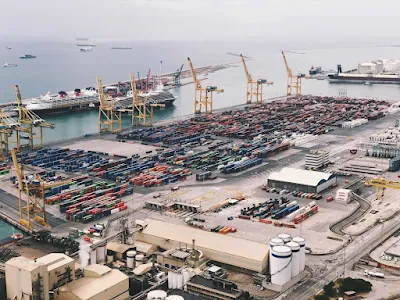Russia attacked the sea port of Odessa with cruise missiles on Saturday, less than 24 hours after signing an agreement aimed at resuming Ukrainian grain exports from Odessa and two other Black Sea sites.
Sergey Brachuk, adviser to the head of the Odessa Regional Military Administration, said via Telegram that two Kalibr missiles hit the port infrastructure, and the Ukrainian air defense shot down two missiles.
1. Introduction to the Situation in Ukraine
Background of Russia-Ukraine Relations
The roots of the conflict between Russia and Ukraine can be traced back centuries, but tensions reached a critical juncture in 2014 when Russia annexed Crimea, a region historically and culturally significant to both nations. The move was widely condemned by the international community and led to ongoing friction between the two countries.
Recent Tensions
In recent years, tensions between Russia and Ukraine have escalated further, fueled by territorial disputes, allegations of Russian interference in Ukrainian affairs, and competing geopolitical aspirations. The situation has remained volatile, with periodic outbreaks of violence and diplomatic standoffs.
2. Overview of Odessa
Importance of Odessa Port
Situated on the northwestern shore of the Black Sea, Odessa is Ukraine's third-largest city and a crucial economic hub. At the heart of its significance is the Odessa Port, one of the largest and busiest ports in the Black Sea region. The port plays a vital role in Ukraine's economy, facilitating trade and transportation of goods to and from Europe and beyond.
Strategic Significance
Beyond its economic importance, Odessa and its port hold strategic value for both Ukraine and its adversaries. Control over the port provides access to key maritime routes and enhances maritime capabilities, making it a prized asset in geopolitical calculations.
3. Russia's Attack on Odessa Port
Provocation and Escalation
Recent developments have seen an alarming escalation in tensions, culminating in Russia's direct military assault on the Odessa Port. The attack represents a significant escalation of hostilities and marks a dangerous turn in the conflict between Russia and Ukraine.
Military Action Details
Details of the attack remain sketchy, but reports indicate that Russian naval vessels launched missiles and conducted amphibious landings in an attempt to seize control of the port. The assault has resulted in widespread destruction and loss of life, further destabilizing the region.
4. International Response
Condemnations and Calls for Action
The international community has swiftly condemned Russia's aggression, with leaders from around the world denouncing the attack on Odessa. Calls for action have been voiced, urging diplomatic intervention and punitive measures against Russia for its blatant disregard of international norms.
Diplomatic Efforts
Efforts to defuse the crisis are underway, with diplomatic channels being mobilized to seek a peaceful resolution. However, achieving meaningful progress remains challenging amid deep-seated mistrust and divergent interests among the parties involved.
5. Impact on Ukraine
Economic Ramifications
The attack on Odessa Port has dealt a severe blow to Ukraine's economy, disrupting vital maritime trade routes and undermining investor confidence. The country now faces the daunting task of rebuilding infrastructure and restoring economic stability amidst ongoing hostilities.
Humanitarian Concerns
Beyond the economic fallout, the conflict has exacted a heavy toll on civilians, with thousands displaced and vulnerable to the ravages of war. Humanitarian organizations are mobilizing to provide aid and support to affected communities, but the situation remains dire.
6. Analysis of Russia's Strategy
Political Motivations
Russia's decision to target the Odessa Port reflects its broader strategic objectives in the region, including asserting dominance over key maritime routes and undermining Ukraine's sovereignty. The attack serves as a stark reminder of Russia's willingness to resort to military force to advance its geopolitical agenda.
Military Objectives
From a military standpoint, the assault on Odessa Port aims to weaken Ukraine's maritime capabilities and gain control over strategic assets. By seizing control of the port, Russia seeks to enhance its leverage in negotiations and project power in the Black Sea region.
7. Future Implications
Potential Escalation Scenarios
The attack on Odessa Port raises concerns about the possibility of further escalation, with fears of a broader conflict engulfing the region. The risk of miscalculation and unintended consequences looms large, heightening the urgency for diplomatic efforts to prevent a full-scale war.
Prospects for Peace Talks
Despite the grim outlook, there remains a glimmer of hope for a peaceful resolution to the crisis. Diplomatic initiatives, backed by concerted international pressure, offer a path towards de-escalation and eventual reconciliation between Russia and Ukraine.
8. Conclusion
The attack on the port of Odessa marks a dangerous escalation in the conflict between Russia and Ukraine, with far-reaching implications for regional stability and security. As the international community grapples with the aftermath of this brazen act of aggression, the urgent need for concerted diplomatic action to prevent further bloodshed and pave the way for a lasting peace has never been more apparent.


Comments
Post a Comment